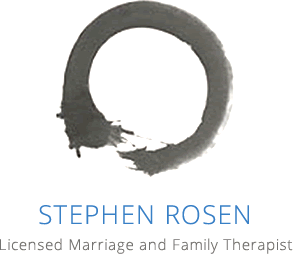The idea of unconditional love in relationships is a noble one. Each of us wants to be loved as we are, without conditions, and to see ourselves as capable of bestowing unconditional love on our partners. However, this type of love, in its narrowest definition, is difficult, if not impossible.
The Meaning of Unconditional Love
Part of the problem with unconditional love in relationships is the lack of understanding of what it means. Most of us will think of a parent’s love for a child, or a child’s love for a parent, as unconditional love. This type of love depends on nothing other than the familial bond and doesn’t break down based on what the child or parent does—at least in an ideal scenario.
In the purest sense, unconditional love is about caring about the happiness of another person without any concern for how it benefits you. Research tells us that the parts of the brain that light up during unconditional love are similar to those involved in romantic love and maternal love, and are linked to the brain’s reward system. This suggests that unconditional love may be rewarding without receiving anything in return.
I have been providing psychotherapy and coaching services to individuals, Couples Therapy Washington DC Area and families for over twenty years. In addition to my private practice, I am the cofounder of a training and coaching organization that provides virtual training and coaching services to companies. I have also served as the executive director of an organization that provides behavioral health and substance abuse treatment services at clinics throughout the United States. I have extensive training in psychodynamic, cognitive-behavioral as well as contemplative and mindfulness-based approaches.In my work, my deepest desire is to contribute – to assist others to live with greater awareness, compassion and joy.
Unconditional Romantic Love
The question becomes whether adults in relationships can also show each other this type of unconditional love. To feel safe in a relationship, it makes sense that you need to feel as though the other person is not going to abandon you based on a whim. You need to know that person is committed to loving you unconditionally no matter what the future brings.
The problem is that this definition in romantic relationships can break down under numerous conditions and for good reason. As much as you might love an alcoholic, a liar, or a cheater unconditionally, this isn’t healthy for you as a person. This means the definition of unconditional love in romantic relationships needs to be expanded a bit. For love to continue, there must be mutual respect, not an attitude of your partner that “you will put up with me, no matter what I do.”
Unconditional Positive Regard
This brings us to the topic of unconditional positive regard, probably a closer approximation of what we mean by unconditional love in relationships. In this sense, unconditional love doesn’t mean always giving people what they want or always accepting what they do, at the expense of your own needs.
Instead, it is a mature type of love that means treating the other person with love and respect, even while maintaining your boundaries and protecting yourself. Whereas the immature version of unconditional love would have you feeling as though you must be everything to the other person, the mature version has you recognize that your only obligation, in the face of the other’s behavior, is to communicate your message with love and respect.
This means being attentive and attuned, even while you are setting limits and boundaries. It also means honoring the requests of others when you are able to do so without harming yourself.
It means not being harsh or dismissive, as this does not lead to compromise or solutions. At its core, this is assertiveness—letting the other person know where you stand so that together you can work out the best outcome for the two of you together.
How to Love Unconditionally
When we think about how to go about loving someone unconditionally in a relationship, the following points emerge:
Practice open communication, so that both of your needs can be met.
Communicate in a non-defensive way. Express your feelings while listening and taking the other person’s feelings into account.
Don’t let the little annoyances of life override your love. Unconditional love means seeing past the squabbles about the little things in life. If you have a commitment of love that is larger than those things, you will have staying power.
Share power in your relationship. No one person should get everything they want, or this will lead to resentment by the other person.
When Relationships Break Down
We are programmed in life to have conditional love. You love your husband because of his unique traits and qualities that attracted you to him. It’s why you love him and not another man. The question becomes, if he changes, at what point is love withdrawn?
True mature love should come with no strings attached. It is a behavior, rather than a feeling, a point of confusion that can lead to the breakdown of romantic relationships. The satisfaction of unconditional love should come from the act of giving it to the other person, not from what you receive in return.
If we think about unconditional love as the “expression of our kindest self,” it can be maintained even if a relationship does not survive. You might know couples who still love each other but are no longer together. If a relationship is hurting you more than it is good to you, it is okay to feel unconditional love but let the relationship go.
Unconditional love is basic goodness and the total acceptance of someone, but it does not mean tolerating abuse, neglect, or other deal breakers. What about the less clear area of falling out of love with someone? If you still show them unconditional love, you will find a way to kindly and gently end the relationship.
In essence, when we first fall in love, it’s in an unconditional state, and we can’t ever imagine not feeling this way about the other person. But we live in a conditional world, and relationships do end. We all have different tastes and needs, and these can change over time.
One thing is certain; relationships that are completely lacking in unconditional love are unlikely to succeed. Beliefs and lifestyle are likely to change over time, and if you aren’t willing to see your partner go through changes, this could spell the end for the two of you.
You can be more to your partner when you offer unconditional love in the mature sense. One way to tap into this is to be mindful of the present moment. If you struggle with this, consider practicing mindfulness meditation. This will help you slow down and become aware of your relationship needs.
It can also be helpful to learn how to show yourself the same unconditional love that you are trying to show to your partner. If you don’t show it to yourself, you might be looking for too much from your partner—looking for him or her to prop you up.
By Arlin Cuncic, Medically reviewed by a board-certified physician

